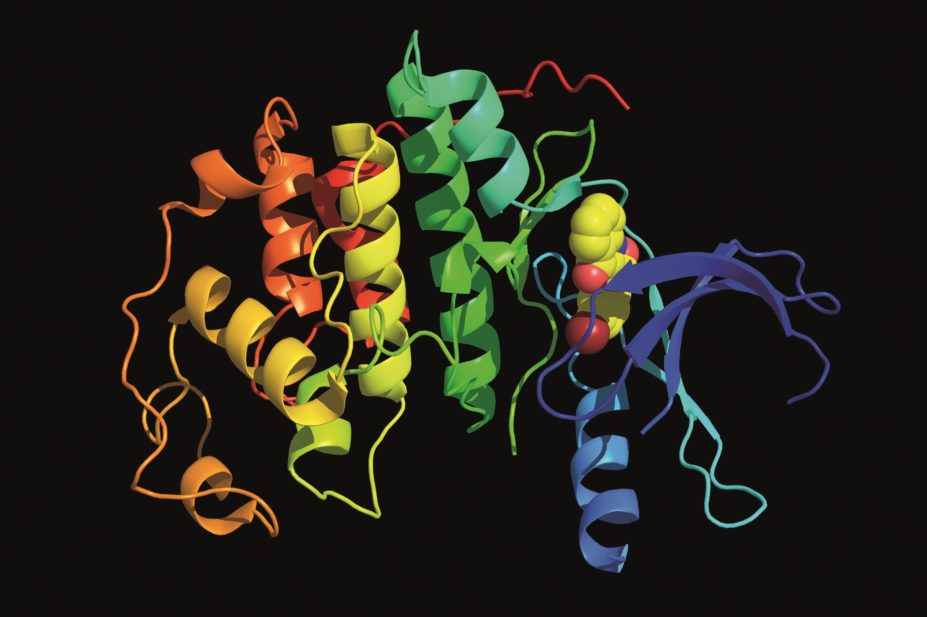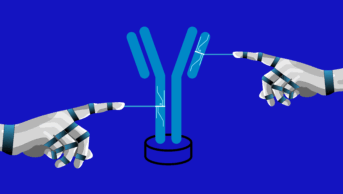
Dr Tim Evans / Science Photo Library
Researchers have developed a new biochip platform that will make drug discovery quicker and more cost-effective, according to an article published in Scientific Reports
[1]
.
A team of researchers based at the University of Bath has developed a platform to screen new drug compounds by detecting their effect on the activity of enzymes called kinases. These enzymes help regulate a number of biological pathways in healthy human cells via a process known as phosphorylation – whereby the enzyme adds a phosphate group to a protein or other molecule. But they can also cause life-threatening diseases such as cancer, dementia and diabetes if their normal function is disrupted.
The platform incorporates semi-conductor devices that measure protein kinase activity by calculating pH change, which indicates the effectiveness of a potential drug compound in blocking kinase activity.
“This is a very flexible platform,” says Giordano Pula, a lecturer in cardiovascular pharmacology at the department of pharmacy and pharmacology at the University of Bath, and one of the article’s co-authors. “What we measure is the reaction itself [the process of protein phosphorylation], so the identity of the kinase doesn’t matter. When pharmaceutical companies have this technology in house, they can apply it to tens, if not hundreds, of targets.”
Drug discovery programmes frequently involve time-intensive screening of large libraries of compounds to detect new inhibitors of protein kinases and often rely on the use of antibodies or radioisotopes to identify drug candidates.
“The use of radioisotopes and antibodies is very expensive, and that certainly slows down a lot of the research in this field,” says Pula.
On top of this, researchers often encounter obstacles in identifying antibodies that can recognise proteins with phosphates attached. For many kinases of interest, says Pula, there are no suitable antibodies available. And the use of radioisotopes is an undesirable way of testing for protein kinase activity because it is environmentally unfriendly and less safe for researchers, he adds.
By contrast, the new platform frees researchers from relying on antibodies or radioisotopes to analyse protein kinase activity; it works by using a biochip to sense tiny changes in electrical charges caused by protein phosphorylation.
The researchers are looking to identify industrial partners and collaborate with them to further develop the system.
“This is an example of a process where we can speed up drug discovery and make it more affordable as well,” Pula says. “This has to be the most significant aspect of the discovery. We saw recently with the Ebola case that the ability of scientists to respond quickly to an emergency is important.”

